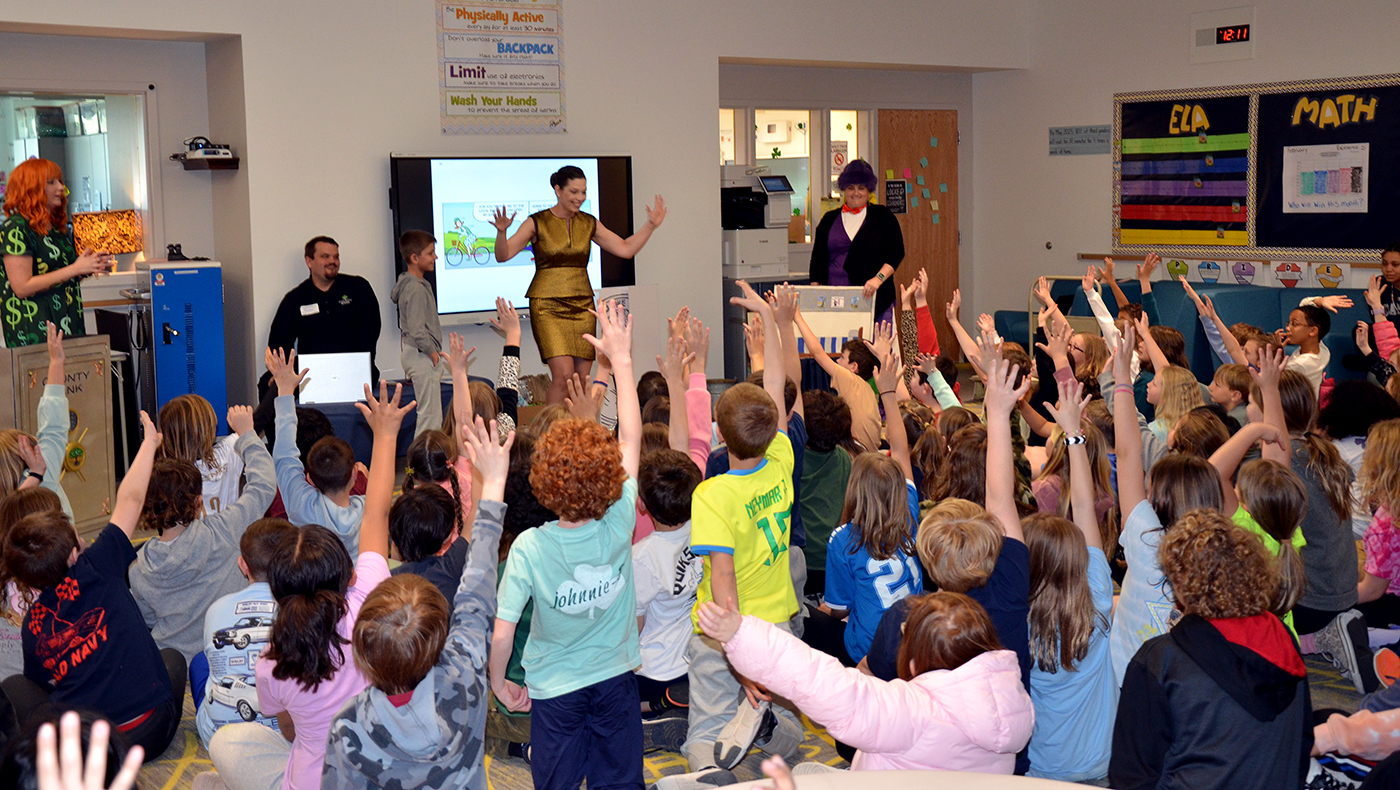This April, Delaware celebrated the 27th annual Teach Children to Save Day, a national financial literacy initiative coordinated locally by the University of Delaware’s Center for Economic Education and Entrepreneurship (CEEE) at the Alfred Lerner College of Business and Economics, in partnership with the Delaware Bankers Association and the Delaware Financial Education Alliance. This initiative brings banker volunteers into elementary classrooms each spring to teach students about the importance of saving money.
This year’s lesson focused on the value of saving in interest-bearing accounts. Over four weeks, 20 banks across the state reached more than 5,500 third- and fourth-grade students in 196 classrooms across 63 schools. With skits, props and hands-on activities, volunteers from the banking community, many of whom are longtime partners of the program, helped students understand the real-life impact of saving early and often.
Inspired by these classroom visits, here are seven fun and effective ways to teach kids about saving money—straight from the schools that made it happen.
1. Make Saving a Family Priority
Just as Delaware’s statewide effort brings everyone together, saving is more effective when it’s a family affair. Create a savings goal, like a game night, pet fund or summer outing, and invite children to contribute. Use a clear jar so they can see their savings grow. When adults model healthy financial behavior, kids are more likely to follow.
2. Act It Out
At Love Creek Elementary in Lewes, County Bank volunteers acted out the story of “Penny and Investo” with costumes, props and water bottles. Penny saved wisely and earned interest, while Investo hilariously tried storing money in a “cloud bank” and a “river bank” (and got soaked!).
Try something similar at home: Create your own characters using puppets, toys or costumes and turn financial lessons into a fun, memorable activity.
3. Use Visuals and Hands-On Tools
After the story, County Bank volunteers showed third graders how compound interest works using baskets and coins. One student’s “savings basket” grew full, while the “spender’s basket” stayed nearly empty, a simple visual with a lasting impact.
Recreate the concept using two jars and offer a small “interest bonus” each week to demonstrate compound growth. Seeing the difference makes the lesson stick.
4. Set Goals and Link Them to Saving
At Townsend Elementary, students reflected on their goals after hearing a lesson led by Kristin Macdonald, senior vice president of Bank of America. Many were surprised to learn that banks reward them for saving, and were eager to start.
At home, ask your child what they’d like to save for and help them figure out how much they need to reach their goal. Turning abstract lessons into real-life planning helps keep them engaged.
5. Offer Rewards for Saving
“When you save, you earn more,” said one student after learning about interest.
You can reinforce this idea with a “parent bonus.” Add 50 cents or $1 for every $5 your child saves. It’s a small incentive with a big impact.
6. Invite Experts—or Be One
Students were especially inspired by County Bank’s Yanina Sgroppo Emerick, senior vice president and chief compliance officer, who shared how saving can help students reach their goals. With nearly two decades of experience in banking, Emerick brought credibility and enthusiasm to the classroom.
Consider inviting a relative or family friend to talk with your child about their own savings habits and money management tips.
7. Keep It Fun
From comic books and costumes to laughter and glitter, what stood out in every classroom was how enjoyable the lesson was.
Make saving fun at home with money-themed books and games, or apps like PiggyBot or Bankaroo. Celebrate milestones with stickers, small prizes or a family cheer.
Bonus Tip: Start Early, Start Small
The most important message? Kids are never too young to start learning about money. Simple concepts like saving goals, interest and smart decision-making can be introduced early and taught in fun, engaging ways.
Start with birthday money, allowance, or spare change. And don’t forget to share your own experiences—like saving for a vacation or building an emergency fund—to show that these habits matter at every stage of life.




